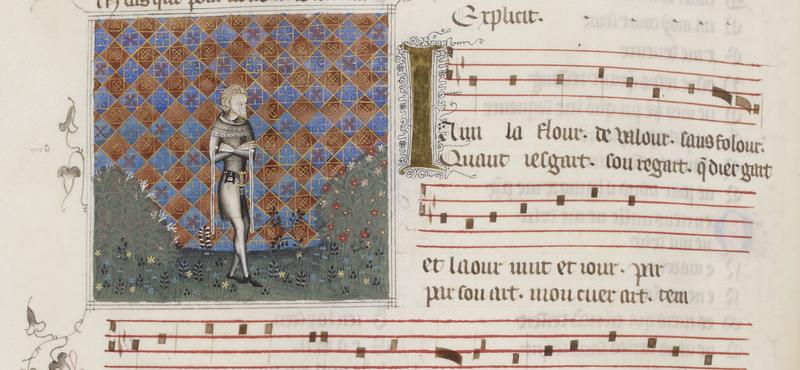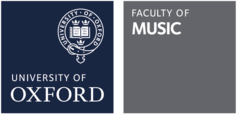All Souls Seminars in Medieval and Renaissance Music

This long-running series of seminars, convened by Dr Margaret Bent, considers all aspects of medieval and renaissance music. It runs on Zoom in Michaelmas and Hilary Terms and generally attracts a large international audience. Usually, a presenter speaks for around 30 minutes and then engages with invited discussants for another half an hour. The floor is then open for questions and lively general discussion. Each term’s seminars are announced in advance on this page and attendees are asked to register via the button below.
For each seminar, those who have registered will receive an email with the Zoom invitation and any further materials a couple of days before the seminar. If you have questions, please send an email to Joseph Mason, who is dealing with the practicalities of holding these seminars via Zoom. From January 2026, some seminar presentations will be recorded and uploaded to the seminar’s YouTube channel.
Margaret Bent (Convener, All Souls College)
Joseph W. Mason (University of Cambridge)
Hilary Term 2026
29 January 2026, 5pm–7pm GMT
Presenter: Kévin Roger (University of Lorraine)
Title: Latin Motets and Literary Networks in the Late Middle Ages: Intertextuality, Rhetoric, and Digital Reading
Discussants: Yolanda Plumley (University of Exeter) and Karl Kügle (Universities of Oxford and Utrecht)
Latin motets of the 14th and early 15th centuries preserve one of the most complex bodies of lyric poetry from the Late Middle Ages. While vernacular art was flourishing, these pluritextual works maintained a dense, erudite, and allusive Latin that has long hindered scholarly interpretation. Because their meaning is often obscure, research has traditionally focused on musical structure rather than on the literary strategies that shape the motet as a poetic object.
This paper investigates the modes of textual invention in Latin motets by analysing their intertextual mechanisms, rhetorical organisation, and broader literary framework. It considers the major French sources and examines how composers drew on classical, biblical, and patristic materials, as well as on florilegia and mnemonic practices. Rather than merely identifying quotations, this research seeks to characterise different forms of borrowing (citation, allusion, discursive resonance) and to understand how they evolve across the corpus.
Digital methods play a central role: TEI encoding enables fine-grained annotation of stylistic features and standardisation of data, while NLP approaches, including LatinBERT, assist in detecting textual reuse and semantic patterns at scale. These tools complement traditional expertise, revealing previously unknown intertextual links and restoring the literary richness of this challenging repertoire.
26 February 2026, 5pm–7pm GMT
Presenter: Andrew Kirkman (University of Birmingham)
Title: Made to measure or prêt à chanter? The Court of Wilhelm IV and the Later Alamire Manuscripts
Discussants: Thomas Schmidt (University of Manchester) and Zoe Saunders (Independent scholar)
The Alamire codices have traditionally been seen as diplomatic gifts, or at the very least commissions from magnates and super-rich aficionados. This article argues that for most of the later, paper codices at least, the sequence happened in reverse: in other words they comprised workshop material that was first produced and then sold once buyers could be found. The same conclusion prompts also a review of the construction of some of the more elegant, parchment sources, and the proposal that the ‘bespoke’ aspects of such codices may have extended no further than their opening—and hence most immediately visible—pages.
12 March 2026, 5pm–7pm GMT
Presenters: Elisabeth Giselbrecht, Louisa Hunter-Bradley and Katie McKeogh (King’s College London)
Title: No two books are the same. Interactions with early printed music and the people behind them
The DORMEME project investigates how early modern owners, readers, and users engaged with printed polyphonic music books, focusing on 1500–1545, when music printing introduced new modes of circulation alongside manuscript and oral transmission. This technological shift expanded and reshaped how individuals interacted with music books—as tools for performance and teaching, as collectable objects, and as sites of confessional negotiation. Our project undertakes a copy-based survey of surviving printed polyphonic books across European and North American collections, documenting marks of use and developing case studies that reveal how these books were used, altered, and understood.
This paper presents the project’s first synthetic results. We outline a taxonomy of interventions—textual, musical, material, and paratextual—and consider them in relation to user motivations such as correction, performance facilitation, confessional adaptation, education, personalisation, and proof-reading. Drawing on detailed examples, we examine textual changes in religious motets, musical annotations including crosses, numbers, custodes, and barline-like dashes, and patterns of personalisation that illuminate different types of owners and users. We also address the distinctive role of the proof-reader as the “first reader,” whose interventions bridge production and use. Together, these findings show how annotations can reshape our understanding of early modern musical practice and book culture.




